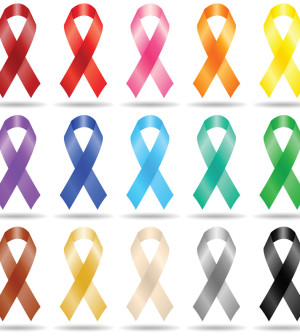- Could Your Grocery Store Meat Be Causing Recurring UTIs?
- Are You Making This Expensive Thermostat Error This Winter?
- Recognizing the Signs of Hypothyroidism
- 10 Strategies to Overcome Insomnia
- Could Artificial Sweeteners Be Aging the Brain Faster?
- Techniques for Soothing Your Nervous System
- Does the Water in Your House Smell Funny? Here’s Why
- Can a Daily Dose of Apple Cider Vinegar Actually Aid Weight Loss?
- 6 Health Beverages That Can Actually Spike Your Blood Sugar
- Treatment Options for Social Anxiety Disorder
Obese Children With Leukemia Fared Worse in Study


Obesity may change the way young people react to chemotherapy for acute lymphoblastic leukemia, new research suggests.
The study showed that obesity made young people more than twice as likely to have leftover leukemia cells. That puts them at a higher risk of the cancer coming back and of death, the researchers said.
The findings could explain why obese young people do worse on initial chemotherapy — called induction therapy — than their peers who aren’t obese.
“Induction chemotherapy provides a patient’s best chance for remission or a cure,” principal investigator Dr. Steven Mittelman, of The Saban Research Institute of Children’s Hospital Los Angeles, said in a hospital news release. “Our findings indicate that a patient’s obesity negatively impacts the ability of chemotherapy to kill leukemia cells, reducing the odds of survival.”
However, the current study was only designed to find a connection between pre-treatment obesity and leftover cancer cells. It wasn’t designed to prove that obesity was the definitive cause of the poorer outcomes.
For the study, the researchers focused on nearly 200 patients between the ages of 1 and 21 years. About one-third were overweight or obese, as defined by the U.S. Centers for Disease Control and Prevention.
Researchers found that those with so-called “minimal residual disease” — leukemia cells that can be detected by sensitive methods — were more likely to have poor results over the next two to five years. The patients who were obese and had residual disease had the worst outcomes of all in the study.
“In addition to increasing a patient’s likelihood of having persistent disease following treatment, obesity appears to add a risk factor that changes the interaction between chemotherapy and residual leukemia cells,” said the study’s co-lead investigator Dr. Hisham Abdel-Azim of The Saban Research Institute in the release.
Gaining weight during the first month of treatment didn’t appear to worsen outcomes, the study found.
The study was published online on Oct. 27 in the journal Blood.
More information
For more about leukemia, try the National Cancer Institute.
Source: HealthDay
Copyright © 2026 HealthDay. All rights reserved.










